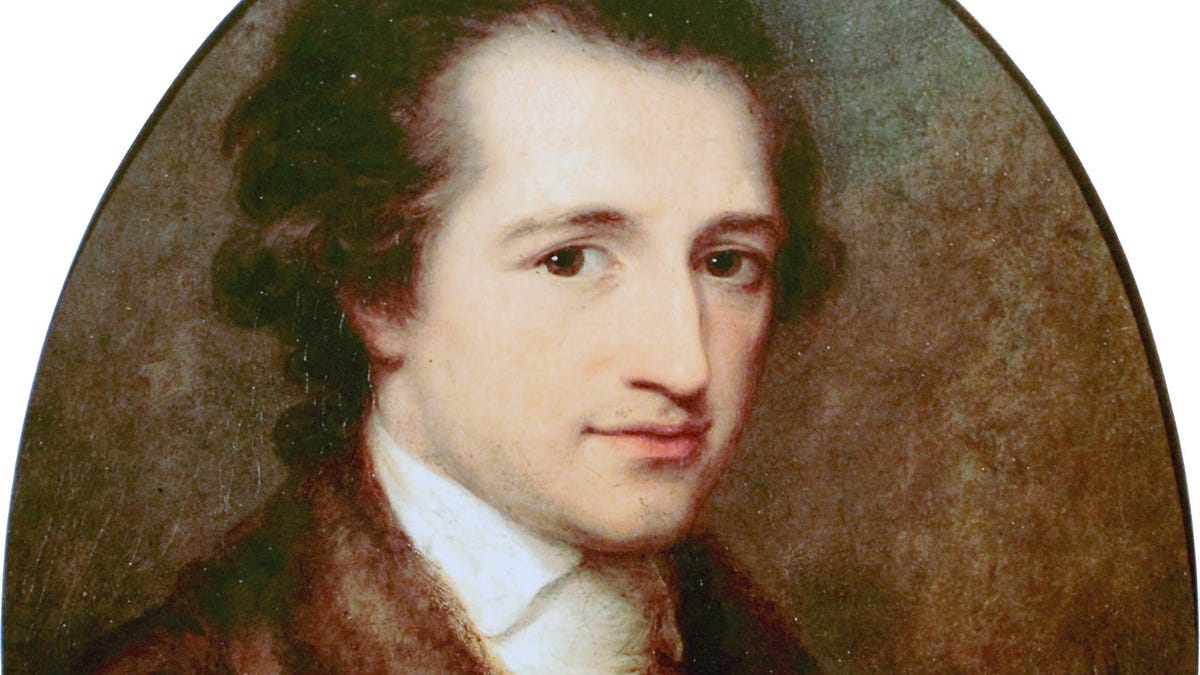Before dejected Ken, there was dejected Napoleon, and dejected Werther…
2024 marks the 250th anniversary of one of the most curious novels in literary history. In 1774, at the age of 24, the future author of “Faust,” Johann Wolfgang von Goethe (1749-1832), created his consequential “The Sorrows of Young Werther” (Die Leiden des jungen Werthers). Equally mocked and imitated, it was the novel that, along with Lord Byron’s “Childe Harold,” inspired countless brooding literary heroes, filled with pride, suffering from dejection, and yearning for the illusive and tragically unrealizable ideal. Napoleon took “Werther” on his Egyptian Campaign and read it over and over again while pining for Josephine.
The tradition of pining for lady love flaunts a venerable literary history − from the lusty tantrums of Achilles on that consequential beach by the walls of ancient Troy to the transcendent yearning of Dante for his Beatrice and Quixote’s flamboyant chivalry with the earthy Dulcinea.
But Werther’s self-indulgent possessiveness is different, modern, and insistent on calling attention to itself. Emerging out of the Age of Enlightenment that produced the Encyclopédie (1751-1772), a 17-volume standardized compilation of Western knowledge, “The Sorrows of Young Werther” defies this rationalizing effort and places the suffering of an individual above the normative culture striving towards universal progress.
The archetypal echoes of Werther’s obsessive passion for one unattainable woman inspired 19th and 20th-century imitations and found its way into contemporary pop culture − immediately recognizable in Ken’s drive to make himself noticed, singled out, and loved by the only woman who brings meaning to his life, Barbie (to be discussed further in my University of Iowa “Barbie” course this fall!). Enacted against the backdrop of a consumerist paradise that constitutes the new standardized Western ideal, Ken’s yearning for the fulfillment of his singular and possessive emotion is deeply evocative of the sentiments expressed by a 24-year-old emerging genius 250 years ago.
In 1808, on the sidelines of the Congress of Erfurt, Napoleon, now emperor and ruler of the vast majority of continental Europe, summoned Goethe, 20 years his senior, for an audience. Napoleon confessed his fondness for “Werther” and inquired why Goethe’s depiction of certain aspects of the narrative deviated so dramatically from lived experiences. Goethe claimed artistic license – and noted in his diary that Napoleon’s knowledge of Werther was deep and showed introspection. What prompted Napoleon to become such a close reader of Werther? Josephine!
Josephine was an event in Napoleon’s life – he was an episode in hers. Six years his senior, a widow whose aristocratic husband was guillotined during the Reign of Terror, Josephine picked up the shattered pieces of her life the best she could. During the Directory, she courted the love and patronage of men who were steering the First French Republic through the choppy waters of the First Coalition War. Through these men she met Napoleon, young, scrappy, and hungry, a newly minted general at 24, ready to take the world by storm. Needless to say, he was smitten! Worldly and intriguing, she was the epitome of the sophistication and elegance the young and artless Corsican admired and craved. His ardent letters to Josephine were filled with intimate details and fantasies that would not have been alien to Werther’s inflamed imagination. And yet when Napoleon departed for his First Italian Campaign, Josephine took a lover, a dashing Hussar lieutenant, and Napoleon’s passionate letters went unanswered:
“Do you love me no longer?
Forgive me, love of my life, my heart is racked by conflicting forces. Obsessed by you, my heart is full of fears which make me unhappy… I am distressed not to be calling you by name. I shall wait for you to write it. Farewell! Ah! if you love me less you can never have loved me. In that case, I shall truly be pitiable.”
These lines could be easily mistaken for a draft of one of Werther’s outpourings to his beloved Lotte. In the final years of the tumultuous 18th century, Napoleon found solace for his frustrated military and political ambitions and unfulfilled love for Josephine in the receptive volume of Werther’s sufferings.
For his service to literature, Napoleon awarded Goethe the Legion of Honor, which Goethe displayed with pride, calling Napoleon “my emperor.” And Josephine? She and Napoleon drifted apart; he took many mistresses over the years of his subsequent military triumphs – yet he crowned Josephine his empress in 1804. Their eventual divorce and Napoleon’s second marriage were prompted by the need for succession − Josephine could not give him the heir he desired. Still, on the windswept island of Saint Helena, on his deathbed, Napoleon’s last word was Josephine’s name. Goethe’s Werther – and Ken – would approve.
For a guided reading of The Sorrows of Young Werther, check out Anna’s Substack posts at: https://annasthinkingcap.substack.com/p/annas-thinking-cap-reading-marathon-f8e
Anna Barker is an adjunct assistant professor at the University of Iowa. She received her Ph. D. in Comparative Literature in 2002 with a dissertation in translation studies. She has taught University of Iowa courses in the English Department, in Comparative Literature, in Russian Literature, and in the Honors Program.

